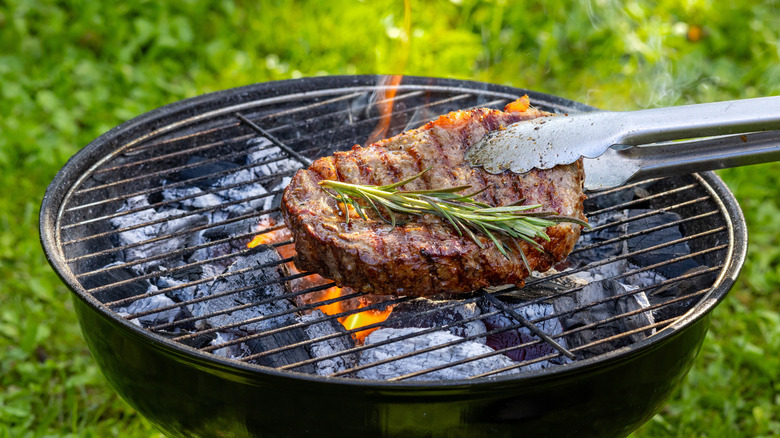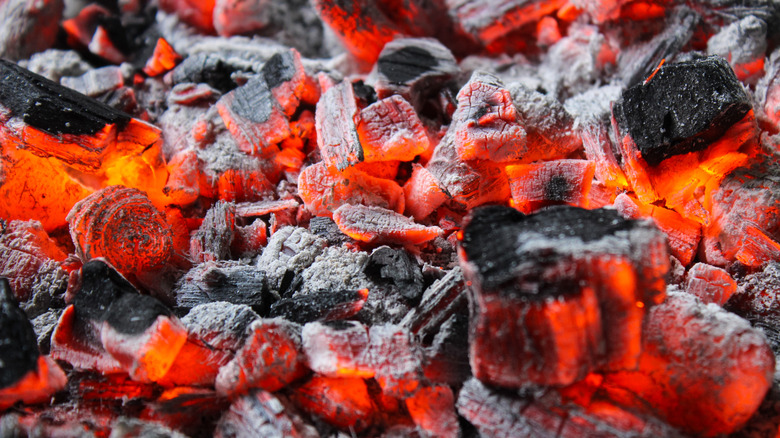How To Make Charcoal Grilling A Little More Eco-Friendly This Summer
We may receive a commission on purchases made from links.
There's something infinitely comforting about standing over a grill loaded with juicy meat (or succulent veggies) on a fine summer day while you quench your thirst with a cold beer. There's only one problem: Grilling is pretty bad for the planet. This is especially true of charcoal grills, which produce around 11 pounds of carbon dioxide for every single hour they're in use. For comparison, a gas grill releases about half that amount. So, should you change to a gas grill and get used to inferior tastes or, even worse, stop grilling altogether? Not necessarily.
While there is no way to grill that is completely sustainable, you can make a few small changes to reduce your impact. The main one is choosing lump charcoal made with natural materials like wood or coconut shells. (Jealous Devil All Natural Hardwood Lump Charcoal is a good option.) The main difference between lump charcoal and charcoal briquettes is that the latter requires fillers, binders, and chemicals.
But not all lumps are created equal, since some are sourced in irresponsible ways that contribute to deforestation or from companies with unsafe working conditions. Choose lumps with responsible practices, preferably made in the United States to reduce transportation emissions. The difference is clear: Whereas 1 pound of regular lump charcoal emits around 12 pounds of carbon dioxide, sustainable lumps only emit half that amount, or even less. This simple switch keeps chemicals out of your body and reduces greenhouse gas emissions. It's a no-brainer.
More ways to green up charcoal grilling
Once you have your lumps sorted, ditch the lighter fluid. The U.S. Environmental Protection Agency estimates that using this product releases 14,500 tons of volatile organic compounds (VOCs) into the atmosphere annually. These compounds not only cause air pollution but can also result in a host of health problems for the person doing the grilling, ranging from eye, nose, and throat irritation to liver damage. Instead, go for a non-chemical option like these pure paraffin wax fire starters from Masterbuilt. If you want a quick fire, use a paper towel soaked in cooking oil. It's not the most orthodox way to dispose of used cooking oil, but it's less toxic than chemical lighter fluids and works quite well.
Another easy way to reduce your impact is to calculate how much charcoal you really need for a BBQ. Charcoal isn't very efficient, so using only what you need will keep it from going to waste. As a general rule of thumb, you need between 1 and 1.5 pounds of charcoal per 1 pound of meat.
Avoid buying a cheap grill that'll only last for a year or two before ending up in the landfill. Investing in a high-quality grill is better for the planet and your wallet. Finally, if you're the kind of person who's into upcycling and likes a project, try working with what you already have. Hardwood can actually be burned down into charcoal in your backyard.

